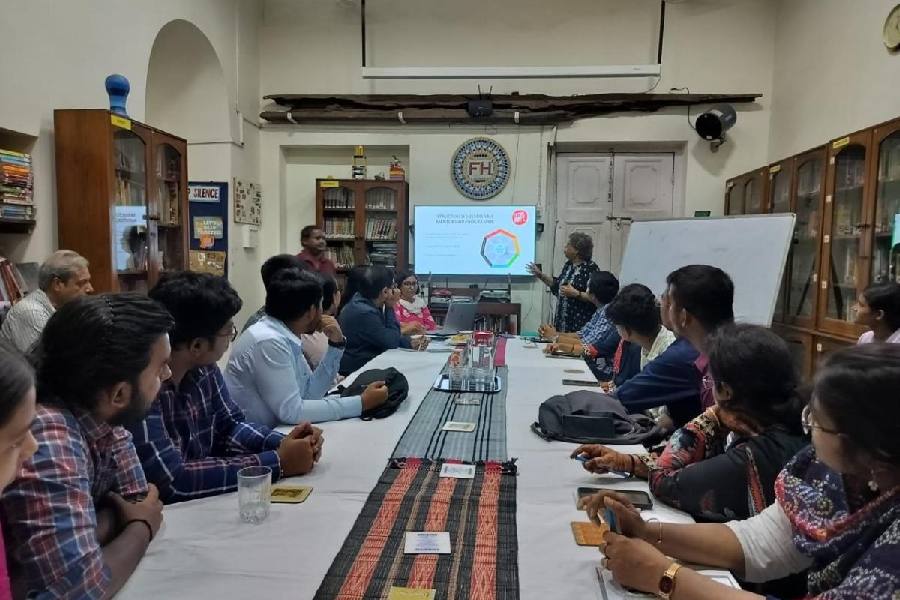Mentors help students plan career: Future Hope kids get world-ready


Students, most of whom are first-generation learners and from families that struggle to make ends meet, are being mentored on career choices and become world-ready.
Each student who steps into college is assigned a mentor, who would speak to them, handhold them, clear their confusion and show them the way forward.
The objective of the mentorship programme by the NGO Future Hope is to help students till they are “able to stand on their own”. Such mentorship will help them become “independent much faster”, the organisation said.
The programme was launched in the third week of May.
Each mentor, for example, a director of an automobile company, a bank probationary officer, an impact investor, or a retired finance professional, has been assigned a couple of mentees under them.
The idea is to support them till they become independent so that they do not drop out after school or midway into college, something which is common because of a lack of proper guidance.
“If we handhold them they will become independent. Some might take longer, but it will happen if we support them,” said Sujata Sen, chief executive officer, Future Hope.
“Like all young people in general, many of our students are confused about their career options. They will be able to discuss and share with the mentors their thoughts. There would be somebody to listen to them, give them time and discuss the possibilities that they have,” said Sen.
The mentorship programme is a structured programme, where a mentee would get time with a mentor, once every fortnight. It could sometimes be in person and sometimes online.
The mentors will give feedback to the NGO.
Chartered accountant Ravi Prasad said he was going to prepare the young people to face the world outside their sheltered space at Future Hope.
“They might be a topper at Future Hope but when they go to college they might be at the bottom of the class. Or they will have people from diverse socioeconomic backgrounds in their class. We have to teach them to cope with the complexities of life, the inequalities, accept defeat and carry on,” said Prasad.
The mentorship programme is different from career counselling, he said.
The students do not have anyone at home to guide them and a little push and guidance would see them go places.
Some of the alumni of Future Hope are successful in their lives.
Like an electrical engineer, who lived in a one-room tenement in Topsia, and is now in the merchant navy or the daughter of a domestic help who works in a clinic to ensure her mother no longer works in other people’s homes.
There are many more.
Some organisations support students till Class XII, or till they turn 18, after which they are left to fend for themselves.
They might be adults but not mature enough to find their ground, said Sen.
“Do we leave our children when they turn 18? We keep guiding them and the same principle applies to our students here. If we do not support them right up to college and further, there is a danger of them sliding back into a life they have left behind.”
Sen said that the organisation does not expect them to forget their roots or where they came from.
The young people are being trained to become independent so they can take care of their families and give back to the society they came from, said the director of an automobile company who is among the mentors. He requested anonymity.